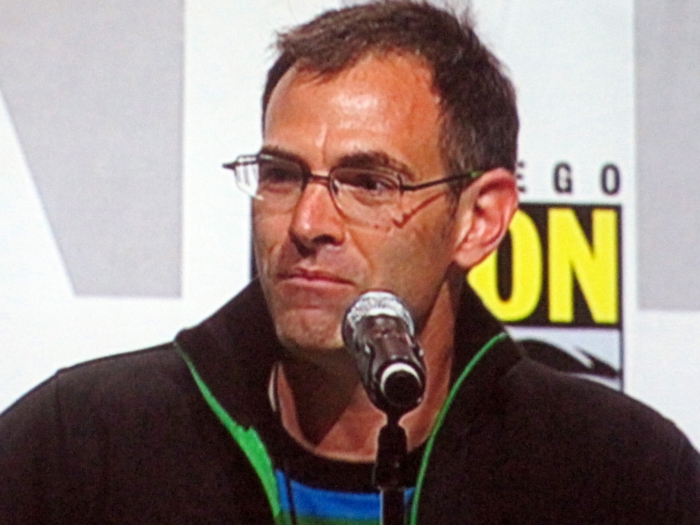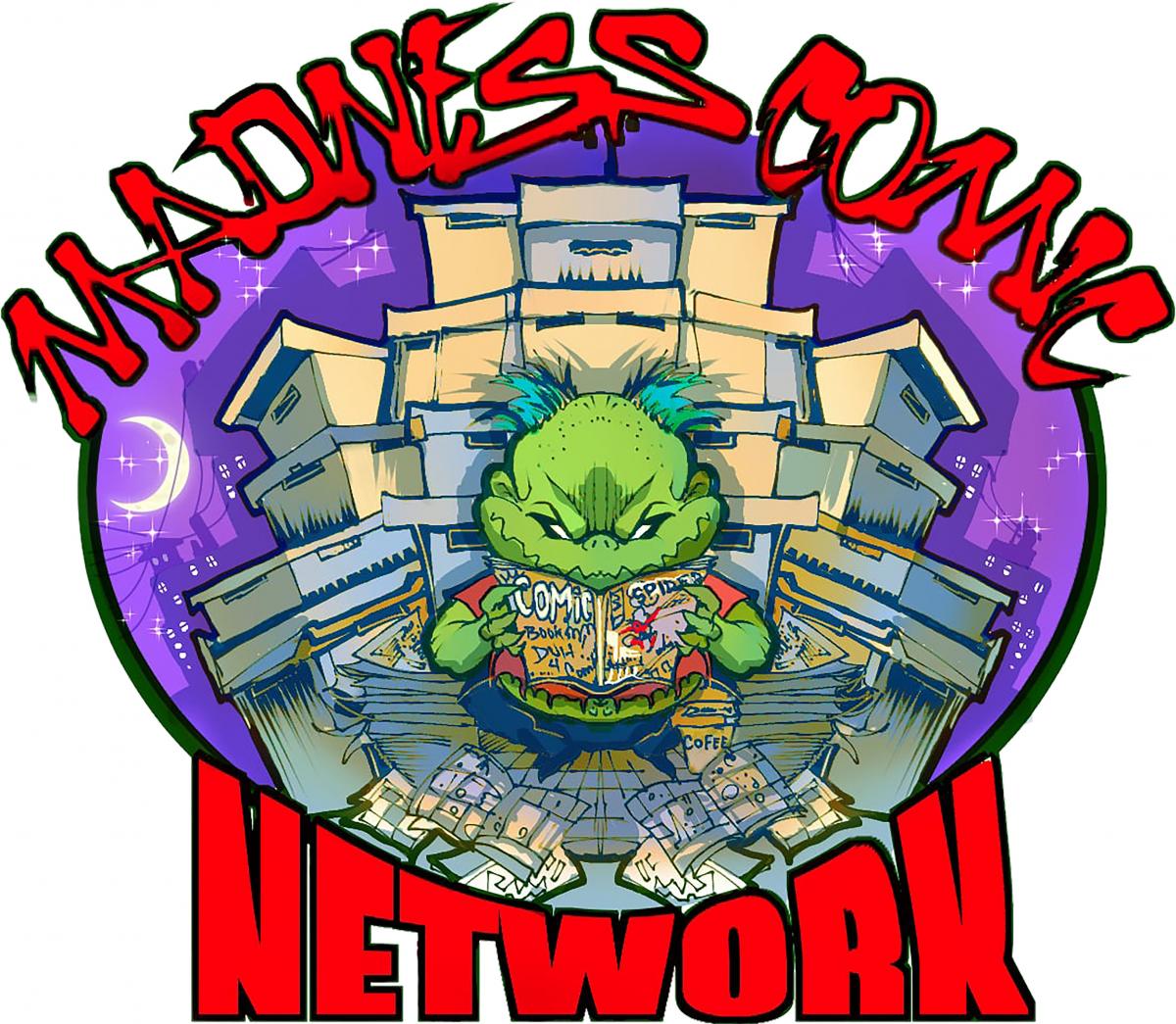Vincenzo Natali: Turtles All The Way Down
FTC Statement: Reviewers are frequently provided by the publisher/production company with a copy of the material being reviewed.The opinions published are solely those of the respective reviewers and may not reflect the opinions of CriticalBlast.com or its management.
As an Amazon Associate, we earn from qualifying purchases. (This is a legal requirement, as apparently some sites advertise for Amazon for free. Yes, that's sarcasm.)

Canadian director Vincenzo Natali's latest film "Nothing" will soon be released on DVD. Natali's first feature-length film, "Cube", about a group of amnesiac strangers trapped in a giant, lethal puzzle box, garnered high praise for its smart scripting, conceptual originality, and deft direction. Natali's second effort, "Cypher", a futuristic story of shifting identity and corporate espionage starring Lucy Liu and Jeremy Northam, demonstrated an increasing sophistication of means and greater command of pacing. And "Nothing?" Unlike Natali's previous films, "Nothing" can safely be considered a comedy, although the comedic elements are an aspect (albeit an important aspect), not the whole.
Natali's films play to the eye and the intellect. For one thing, he trusts his audience, refusing to spell out every plot point in big bright neon letters. For another, Natali shows an uncommon awareness of film's strengths as a visual medium. He captures space in interesting, memorable ways. "Cube"'s stark, machine-like environment comes immediately to mind, of course. "Nothing", while thematically similar to "Cube", is more visually integrated, in a sense, with its combination of exotic -- even surreal -- setting, animation, and live action. For all that, "Nothing" is about something, and it is the characters who move the story forward, not its special effects or visual sleight of hand. Cinematic flash and dazzle aside, Natali's films are about people -- mostly ordinary, some good, some bad -- caught in extraordinary situations.
"Nothing" doesn't easily lend itself to genre characterization. If you were forced to apply a label, how would you classify it? Fantasy? Science fiction? Comedy with fantasy elements? None of the above? All of the above?
All of the above, and if I had been smart, I would have thrown in a bank heist. Yes, "Nothing" is not easily labeled. I'm still trying to figure out what the hell it is! But that of course was part of the joy of making it. In some respects, it really is an experimental film.
Both David Hewlitt and Andrew Miller, the stars of "Nothing", performed under your direction in "Cube", and both also claim credit -- along with yourself -- with the story of "Nothing" upon which the script is based (with screenwriting credit to the Drews). Given the thematic similarities between the two films, and given your working relationship with David and Andrew, is "Nothing" an outgrowth of "Cube?" Did the one tend to logically follow from the other? In short, how did "Nothing" come about?
"Nothing" originated around the same time that I was writing "Cube." I saw it as the comic flipside of the same idea. In this case, the prison has no walls. The characters are trapped by infinity. It's also a reaction to the logical, puzzle-based structure that both "Cube" and my second film Cypher have. It was a relief to do something nonsensical and whimsical. So, you are absolutely correct, "Nothing" is very much an outgrowth of my "Cube" experience. And as for David and Andrew, I think they're the only two actors foolish enough to do something like this with me.
A former literature major, I couldn't help but make a classical connection when I considered both "Cube" and "Nothing" together, as of a piece, with the first two parts of Dante's Divine Comedy, a sort of modernized Inferno and Purgatorio. Is this a legitimate association, or the result of a liberal arts education run amok? And if this is a valid correlation, is there a third Paradiso-like installment in the works?
Ah, you're making me seem much more enlightened than I really am. But I will accept this analysis and in future interviews claim it for my own! Actually, in the case of "Cube", Dante was on my mind. But "Nothing" really came from... "Nothing." There really weren't too many touchstones, literary or otherwise. Except Beckett. We do owe a small debt to the Theatre of the Absurd. And yes, there's more to come: "Nothing" and "Cube" form two parts of an informal trilogy of minimalist fantasy films. The third entry is something called Echo Beach, which is even more pared down. But that's for down the road.
David Cronenburg had very nice things to say about "Cube" ("Ruthlessly beautiful and compelling.") And if memory serves, I think he also had nice things to say about "Nothing." One gets the sense that the Canadian film community is -- if not close-knit -- then certainly mutually supportive. What do you think makes the Canadian filmmaking community distinct from, say, Hollywood's?
I love the community in Toronto (which is my home town). I don't think a film like "Cube" could have been made anywhere else. The labs, the equipment houses and the crews are really supportive of local talent. Likewise for other filmmakers. David Cronenberg, Norman Jewison, and other great directors have been very kind to me and to many other neophytes. It's a really good group of people. Where Canada has had difficulty -- and I don't include Quebec in this -- is at the distribution end. Nobody watches the movies we make, least of all Canadians. The reasons for this are very complicated and are endlessly debated, but it boils down to the fact that we don't have a viable industry. It's government subsidized. And it just kind of limps along. Hollywood is the antithesis of this. I don't get the same sense of community, but there is just so much opportunity. It's a business and a very successful one. I try to see what's good about both worlds. I don't think they're mutually exclusive.
Given the dark, surrealistic style Cronenburg is famous (or notorious) for, do you count him as an influence?
Yes. He's a huge influence. But we're very different kinds of directors. First of all, he's a lot smarter than I am! Really one of the great intellects out there. And I think that is reflected in his movies. They are very clinical and sedate (I mean that as a compliment). Mine are more emotional, more melodramatic, more operatic. Maybe it's my Italian side coming out. And I don't have the same obsessions. He's very connected to the physical, to the corporeal. My brain tends to float around more metaphysical planes.
From a Canadian filmmaking perspective, do you think state support of filmmaking, common in Canada, would or should translate as an effective financing model in the States, particularly where independent films are concerned?
I'm all for it. But personally, I think the government should stay out of funding commercial cinema. The waters get very murky when part of the agenda is to make money, which has been an ongoing problem in Canada. I think the state should directly support art and indirectly nurture industry; i.e., through tax incentives, etc.
About "Nothing" specifically: the animal character Stan the Turtle (played with a certain plodding verve by Bobby the Turtle) garners nearly as much or more screen time than many or any of the other supporting characters. What, exactly, is Stan's significance?
Actually, Stan's part was going to be much larger -- he was going to narrate the movie! But we didn't have enough money to build a talking turtle. Now, I think Stan really exists as a silent commentator, who observes these fools with amused detachment -- or at least that's what you project onto him when watching the movie. He's a turtle because that's what David and Andrew are -- creatures who carry their home on their back and hide from the world. And there is a mythical element to turtles. Australian aborigines believe that the world sits on a turtle's back. There's a funny story about a man who asks a shaman what the turtle sits on? The shaman answers: "Oh, it's turtles all the way down."
One of the notions "Nothing" explores is the selective weeding of memories, the idea of literally flushing away bad memories and experiences and bringing about changes in one's personality and outlook. The transformation in Andrew's character, particularly, is profound. Showing change in characters is uncommon in virtually any genre film (or most mainstream films, for that matter), but is generally considered the hallmark of good fiction in literary terms, anyway. Is Andrew's transformation from agoraphobic neurotic into a calm, capable human being and David's from selfish, self-centered putz into a semblance of thoughtful decency a way of making this change explicit? Is this transformation of character one of the central tenets of the film?
Yes. Its what makes this story a feature and not a short film, it's a twist and the thing that sets the boys against each other. And it's also what gives the movie its humanity. Because it's interesting to see not only what Andrew chooses to eliminate, but also what he chooses to remember, he doesn't want to forget how David hurt him. He doesn't want to let it go, even though he has the power to erase it. He would rather they live in misery. I think that very particularly human action is the basis for a lot of global conflicts.
The environment of "Nothing", the white, horizon-less limbo in which David and Andrew find themselves, is very much its own character, in a way, and also provided the viewer with some unforgettable images. Does this unbounded, featureless space symbolize David's and Andrew's insularity, their essential isolation and inability to connect?
I think you should have directed "Nothing." You're much more insightful than me. Yes, you're right, and although I don't think I ever consciously saw it like that, the void is clearly an externalization of their inner emptiness. And the emptier they get, the emptier their universe becomes. However, I did not want the moral of the story to be 'be careful of what you wish for', like the Midas Touch. It's more complicated than that. In the end, David and Andrew find happiness in spite of the world and in spite of the "Nothing"ness. They find it in each other. And to me, that's the core of the movie, a story about friendship.
The end of "Nothing" -- the very, very end, after the credits finish rolling -- is a little cryptic. Does it signify that one simply can't keep the world out forever, that perhaps David and Andrew are finally ready for the world, with all of its related problems and conflicts and occasional chaos?
The less said about the coda at the end of the film the better. My thoughts will only limit the many possible -- and likely more interesting -- interpretations. I think what's really fun about this movie is that it provokes ideas in the audience. It tickles their brains. That was certainly the case for me in the process of making it.


